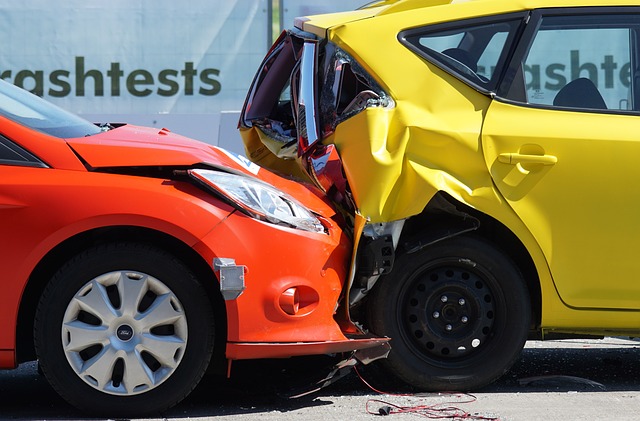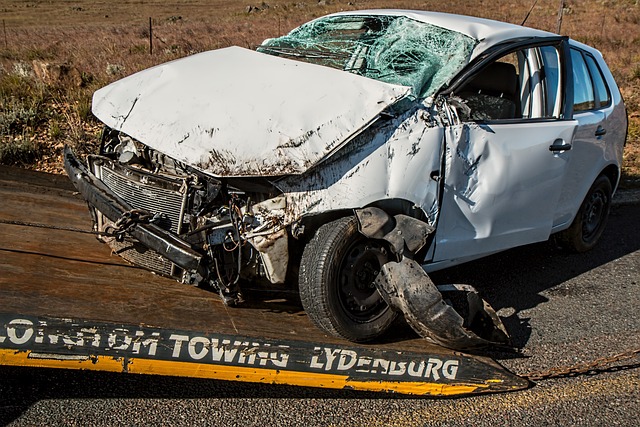Collision vs. Comprehensive Auto Insurance: Understanding the Key Differences
Auto insurance includes collision and comprehensive coverage, catering to distinct needs. Collision insurance is tailored for vehicle damage resulting from accidents with other vehicles or objects, but excludes natural disasters, vandalism, and theft. Comprehensive insurance, on the other hand, offers broader protection against non-collision events like theft, vandalism, natural disasters, animal damage, and weather-related incidents. Choosing between them depends on your vehicle's age, resale value, driving habits, regional risks, and personal needs. Understanding these distinctions ensures you select the right policy for optimal financial protection.
Looking for clarity amidst the complex world of auto insurance? Understanding collision coverage is essential, especially when navigating unexpected incidents on the road. This comprehensive guide breaks down everything you need to know about collision coverage, its differences with comprehensive insurance, and how it can protect you from financial burdens. From coverage specifics to policy types and cost comparisons, we’ll help you make an informed decision for your unique situation.
Understanding Collision Coverage: What It Covers

Collision coverage and comprehensive insurance are two distinct components of auto insurance policies, each offering unique protections for vehicle owners. When it comes to understanding collision coverage, it’s essential to grasp what it entails. This type of coverage is designed to protect you financially in the event of a car accident that results in damage to your vehicle. Whether it’s a fender bender or a more severe collision, collision insurance will help pay for repairs or, if total loss is declared, replacement costs.
Unlike comprehensive insurance, which offers broader protection against various non-collision-related incidents like theft, vandalism, and natural disasters, collision coverage specifically focuses on accidents involving other vehicles or fixed objects. It does not cover damage caused by worn-out parts or mechanical failures, but it ensures that you’re protected when facing the financial burden of accident repairs from a third party’s perspective.
Comprehensive Insurance: Beyond Collision Damage

Comprehensive insurance offers protection beyond collision damage, covering a wide range of risks that your vehicle might face on the road. While collision insurance is designed to pay for repairs or replacements when your car collides with another object or vehicle, comprehensive insurance takes care of various other incidents. This includes damages from theft, natural disasters like floods or storms, vandalism, and even accidental damage caused by animals.
The key difference between collision and comprehensive auto insurance lies in their scope. Collision insurance is specific to accidents involving another vehicle or stationary object, while comprehensive insurance provides a broader coverage, protecting your vehicle against an array of unexpected events. Understanding these distinctions helps drivers make informed choices based on their individual needs, ensuring they’re adequately protected on the road.
When Would You Need Collision Coverage?

Collision coverage is a crucial aspect of auto insurance that protects you against financial loss in case your vehicle is damaged in an accident. Unlike comprehensive insurance, which covers a wide range of incidents beyond accidents, collision coverage specifically addresses collisions with other vehicles or objects. This makes it a must-have for drivers who want to safeguard their investments and avoid paying out-of-pocket expenses for repair or replacement costs.
Knowing when you need collision coverage is essential in making an informed decision. If you drive an older vehicle with limited resale value, collision insurance might not be as appealing since the cost of repairs could be lower than the deductible. However, for newer or more valuable cars, collision coverage provides peace of mind and ensures that unexpected accidents don’t leave you burdened with substantial repair bills.
Types of Collision and Their Impact on Your Policy

When considering auto insurance, understanding the distinction between Collision and Comprehensive coverage is paramount. These two types of policies play distinct roles in protecting your vehicle from various risks. Collision insurance specifically covers damages resulting from accidents, including collisions with other vehicles, objects, or even road hazards. It repairs or replaces your car, but only if it’s involved in a collision that causes physical damage.
In contrast, comprehensive auto insurance offers broader protection against non-collision events. This includes coverage for theft, vandalism, natural disasters, and certain environmental damages. While collision insurance focuses on the physical aspects of vehicle damage, comprehensive insurance acts as a safeguard against a wide array of unexpected incidents. Choosing the right balance between these policies depends on your individual needs, driving habits, and assessment of potential risks.
Comparison: Collision vs. Comprehensive Costs

When deciding between collision and comprehensive auto insurance, understanding the differences in coverage and cost is crucial. While both protect your vehicle from various risks, they have distinct focuses. Collision insurance specifically covers damage to your car resulting from accidents, regardless of fault. It includes repairs or replacement costs for your vehicle. On the other hand, comprehensive insurance offers broader protection, covering not only collisions but also theft, natural disasters, and vandalism.
The cost comparison between collision and comprehensive often depends on several factors. Collision insurance tends to be more affordable since it typically insures only against accidental damage. Comprehensive insurance, with its wider range of coverage, usually comes at a higher premium. However, in areas prone to specific risks like severe weather or high crime rates, comprehensive might be the more economical choice due to the reduced out-of-pocket expenses for various insured events.
Making the Right Choice: Factors to Consider

When choosing between collision and comprehensive auto insurance, understanding the differences is key. Both coverages are designed to protect you financially in case of an accident, but they cater to distinct needs. Collision coverage specifically pays for repairs or replacements if your vehicle collides with another object or experiences damage due to a crash. It’s a vital pick if you’re more prone to fender benders or drive on treacherous roads.
On the other hand, comprehensive insurance steps in when your car suffers damages from events beyond collisions, like theft, natural disasters, or vandalism. It offers a broader spectrum of protection. However, not all incidents are covered equally, so read the policy details carefully. The right choice depends on your driving history, vehicle condition, and how vulnerable your area is to certain risks—whether it’s frequent car crimes or severe weather conditions.
Common Exclusions in Collision Policies

Collision and comprehensive auto insurance both cover vehicle damage, but with distinct differences in what’s covered. While collision policies primarily focus on accidents involving another vehicle or stationary object, there are common exclusions to keep in mind. These often include damages caused by natural disasters, wear and tear, or intentional acts like vandalism.
Comprehensive insurance, on the other hand, offers broader protection against various non-collision events such as theft, animal strikes, and weather damage. However, both types of policies typically exclude certain high-risk activities like street racing or driving under the influence. Understanding these exclusions is crucial when deciding between collision vs. comprehensive auto insurance to ensure you’re adequately protected for your specific needs.
Enhancing Your Protection: Add-ons and Riders

When considering your auto insurance, understanding the difference between collision and comprehensive coverage is key. While both protect against financial loss, they cater to distinct scenarios. Collision insurance covers repairs or replacements when your vehicle collides with another object or vehicle, including liability for damages caused. On the other hand, comprehensive insurance provides broader protection, covering not just collisions but also theft, natural disasters, and vandalism.
To enhance your protection, many insurers offer add-ons and riders to your auto policy. These can include options like rental car coverage during repairs, roadside assistance, or specific coverage for high-value items in your vehicle. By carefully reviewing these additional offerings, you can tailor your insurance to fit your unique needs, ensuring peace of mind on the road and comprehensive protection for your vehicle.
